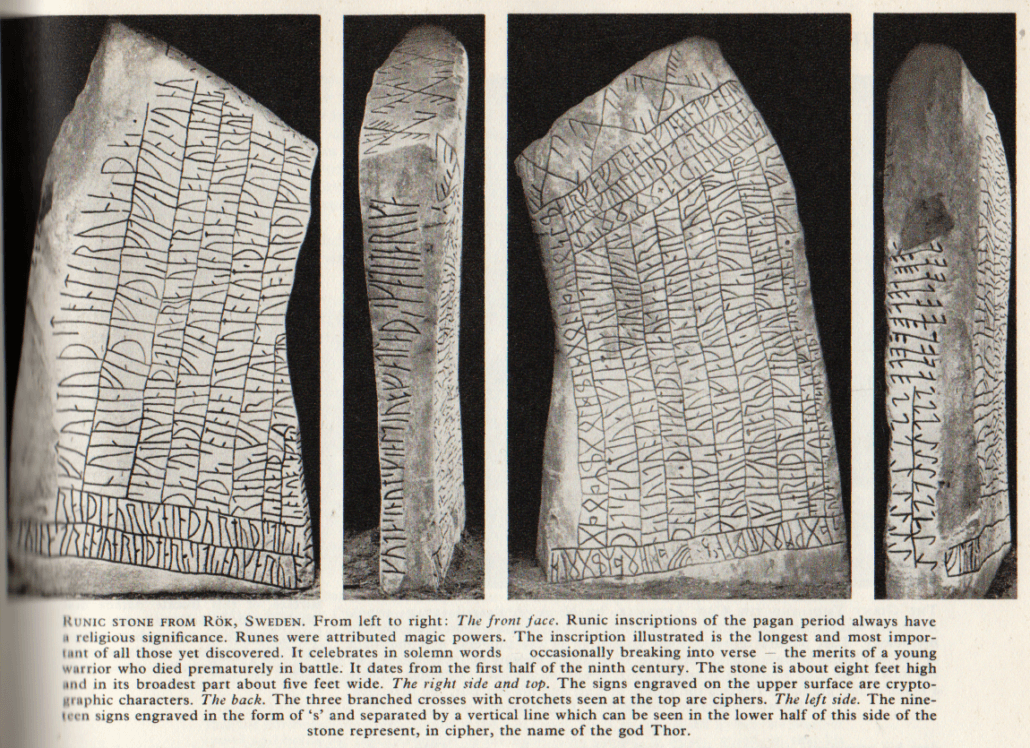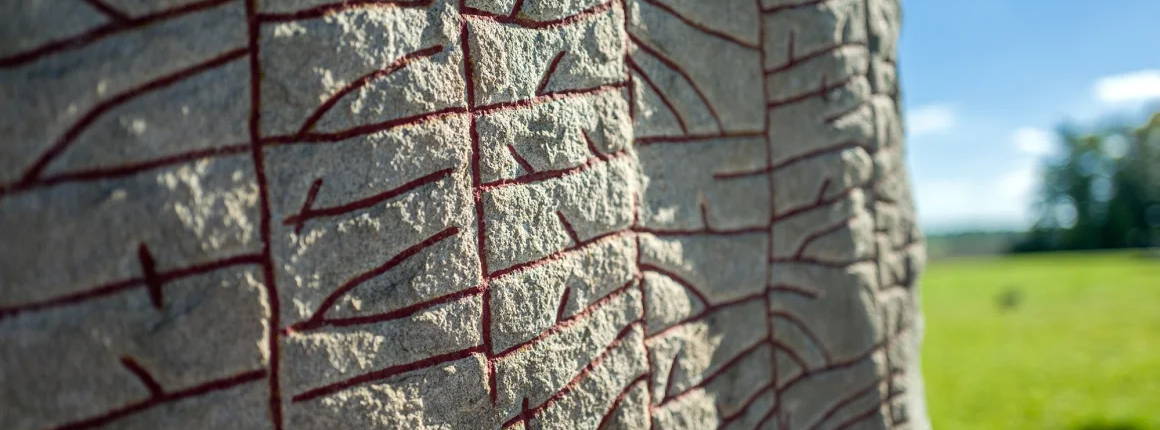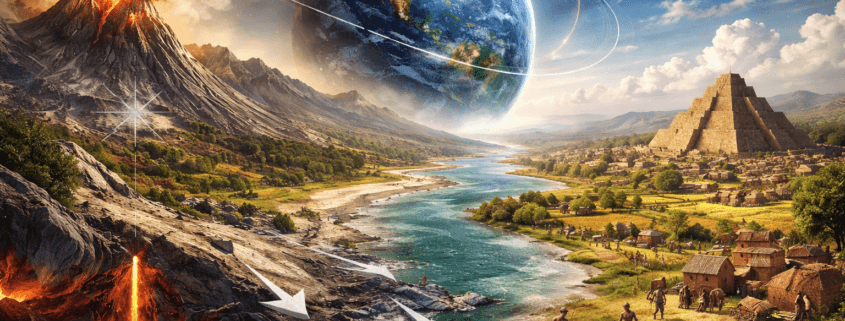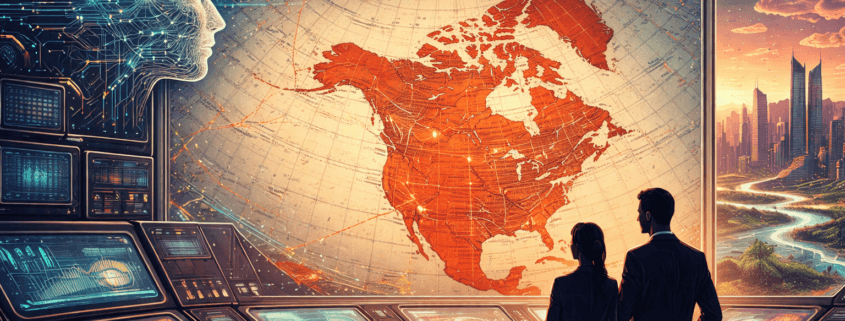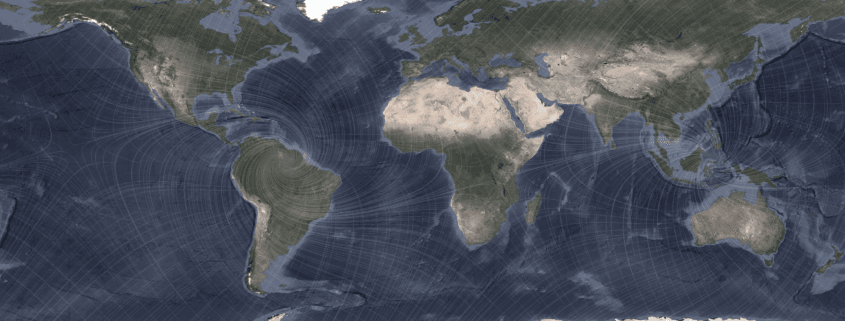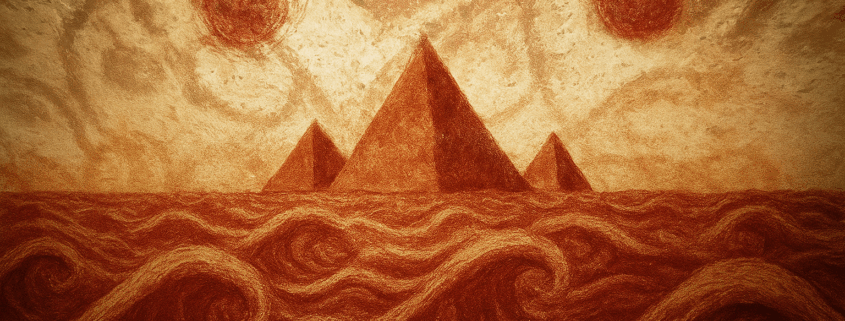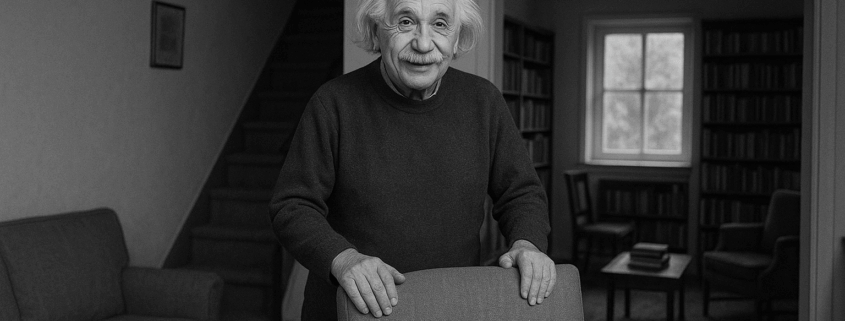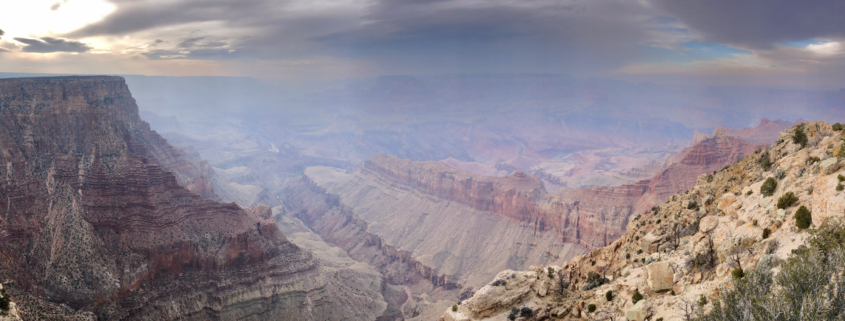The Teutons did not believe that the world would endure for ever nor even that the gods were immortal. Like men the gods had ceaselessly to struggle against enemies who were full of envy and deceit. To maintain their pre-eminence over these demons they had incessantly to remain on the alert. We have already seen how one of them, Heimdall, was appointed to stand guard night and day before the bridge, Bifrost, which gave access to Asgard. But in spite of the precautions taken and in spite of their warlike virtues the Aesir were to finish by succumbing to their enemies. And the world which they had sustained and protected was to crumble in ruins with them.
To this grandiose catastrophe – which is recounted with power and brevity in the Voluspa, one of the best poems in the Eddas – the name Götterdammerung or the ‘Twilight of the Gods’ has been given. This name, which Wagner’s opera has made universally familiar, in point of fact arises from a misunderstanding and even a contradiction. The Icelandic term employed by the oldest bards was ragna rök, which simply means ‘the fatal destiny, the end of the gods’. But from the twelfth or thirteenth century Norse writers substituted for this expression the words ragna rökkr which roughly amounted to the same thing and doubtless had in their opinion the advantage of containing a more striking metaphor: rökkr meaning, in effect, ‘obscurity, shadows, twilight’. From then on the phrase ‘twilight of the gods’ became habitual.
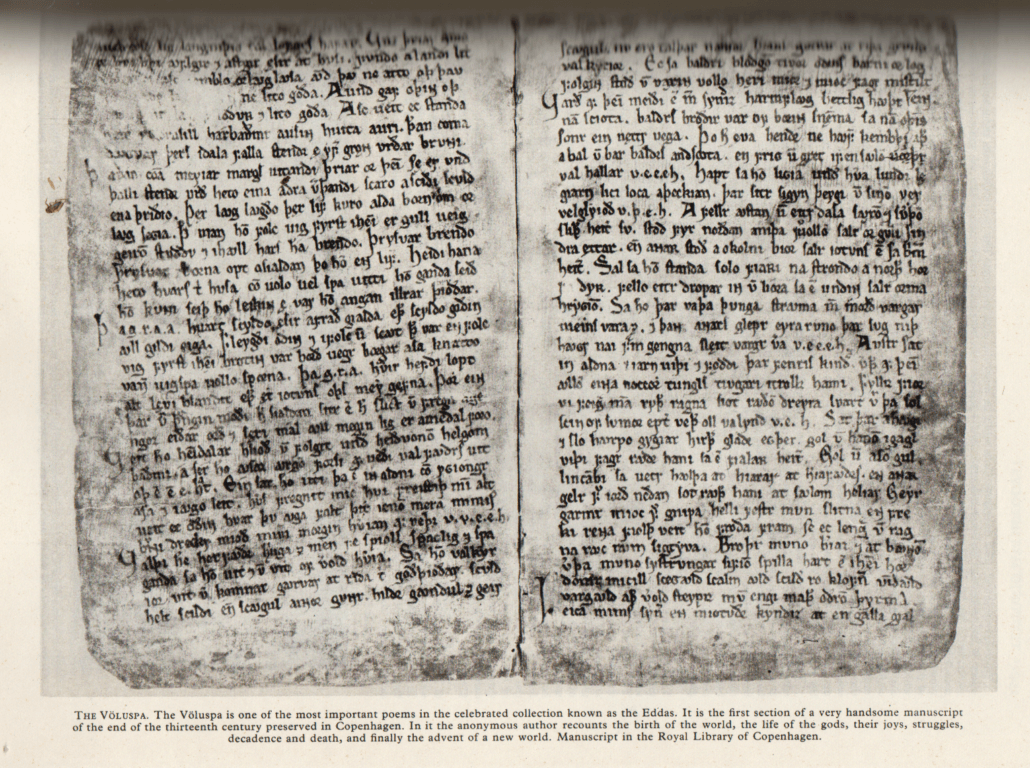
The Voluspa
In the dawn of time the gods in their palaces in Asgard had led a peaceful and industrious life. They had taken pleasure in building temples, erecting altars, working in gold and forging tools with hammer and anvil, or in playing draughts together. Had they only been able to dominate their passions this golden age of peace would never have come to an end.
But the gods brought down the blows of destiny on their own heads. That day in Valhalla when they tortured Gullveig, the envoy from the Vanir, in order to extract her gold, they committed a crime from which the first wars resulted. Later they broke their word to a giant who had reconstructed their celestial dwelling. As the price of his labour they had promised him the goddess Freyja, the sun and the moon. But when the time came to pay they permitted Loki to deceive the giant by a dishonest trick. From that moment all the oaths, all treaties concluded in the world began to lose their force and validity. A new era opened, characterised by perjury, violence and warfare. Men, giants and gods were swayed by hatred and anger. The Valkyries ranged the world continually, flying from one battle to another. Evil dreams began to trouble the sleep of the Aesir. Odin uneasily watched the sinister portents accumulate. He understood that the supreme struggle was being prepared. Calmly and resolutely he made ready to face it.
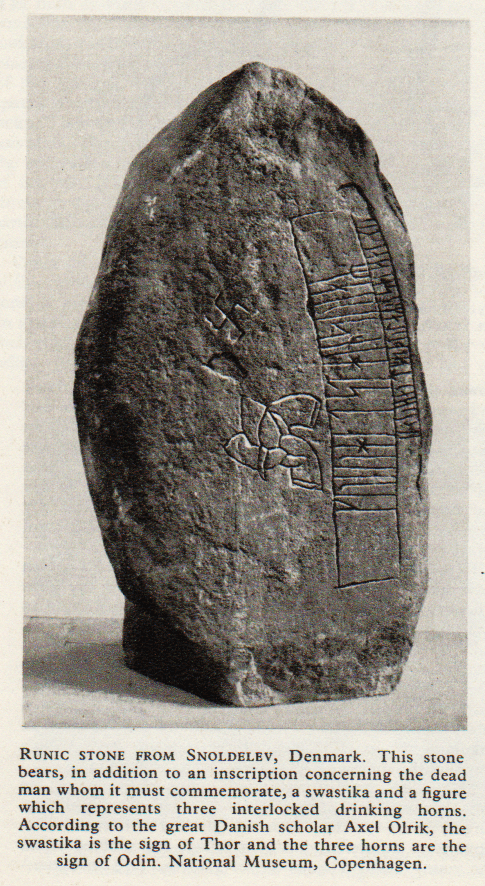
It was the murder of Balder which marked the beginning of the great ordeal. Before his body the Aesir swore an oath to avenge him bitterly. They were not unaware that it was Loki who had armed and guided the hand of the blind murderer.
They seized him at once and put him in irons. This ignominious treatment only served further to envenom the wicked god. He broke his chains and joined the Aesir’s irreconcilable enemies, the demons and the giants, and with them fought against his former companions.
Meanwhile the baleful omens redoubled. In a distant forest in the East an aged giantess brought into the world a whole brood of young wolves whose father was Fenrir. One of these monsters chased the sun to take possession of it. The chase was for long in vain, but each season the wolf grew in strength, and at last he reached the sun. Its bright rays were one by one extinguished. It took on a blood red hue, then entirely disappeared. For the space of several years the world was enveloped in hideous winter. Snowstorms descended from all points of the horizon. War broke out all over the earth. Brother slew brother, children no longer respected the ties of blood. It was a time when men were no better than wolves, eager to destroy each other. Soon the world was going to sink into the abyss of nothingness.
Everywhere people armed themselves and spied on the enemy. At the frontier of the kingdom of the giants a watchman, Eggther, a redoubtable warrior and a fine harpist, sat on an eminence and kept watch on the kingdoms of men and gods alike. Near the river which bordered the underworld, Garm, the terrible dog, howled furiously, calling all who were confined to his guardianship to battle. In the South, where the land of the fire giants began, Surt, the lord of those countries, had already raised his flaming sword.
On the edge of the sky Heimdall, watchman of the gods, was posted. No one in the world had an eye more piercing or an ear more acute than Heimdall, and yet he allowed his sword to be stolen by Loki and only began to sound his horn when the giants were already on the march. The wolf Fenrir, whom the gods had so carefully chained up, broke his bonds and escaped. As he shook them from him he made the whole earth tremble. The aged ash tree Yggdrasil was shaken from its roots to its topmost branches. Mountains crumbled or split from top to bottom, and the dwarfs who had their subterranean dwellings in them sought desperately and in vain for entrances so long familiar but now disappeared.
From the West, in a ship manned by a phantom crew, approached the giant Hrym. He held himself proudly erect, ready for battle; in his left hand he raised his shield, in his right he grasped the tiller. His ship rode forward on the giant waves which the serpent Midgard stirred up as it swam. In its unbridled rage the monster thrashed the waters with its enormous tail and advanced at a furious pace.
Another ship came from the North. Its sails bellied in the wind and it carried the inhabitants of the underworld: Loki sat at the helm. The wolf Fenrir accompanied him. Fire spurted from the beast’s eyes and nostrils; from his gaping jaws dripped blood. His upper jaw touched the heavens and his lower jaw brushed the earth.
From the South appeared Surt, followed by innumerable fire giants. Lightning flashed from his sword and all around him flames sprang from the cracking earth. As he drew near rocks crumbled away and men collapsed lifeless. The vault of the heavens was shaken by the tumult of this army in march and, scorched by the breathing furnace beneath, suddenly cracked in two. And when the sons of the fire giants drove their steeds across the rainbow bridge stretched between earth and Asgard, it burst into flames and caved in.
Following the ancient Germanic custom the opposing armies had by agreement fixed the field for their encounter. This was the field of Vigrid, which stretched before Valhalla and was a square which measured a thousand leagues on each side. Here gods and giants, together with warriors whose numbers were countless, pitilessly butchered each other.
Odin wore a golden helmet, plumed with vast eagles’ wings. In his hand he grasped the good spear Gungnir. Like a hurricane he flew in the forefront of his warriors who swarmed endlessly from the gates of Valhalla. Around him, like a winged host, flew the Valkyries on their dazzling chargers. Odin caught sight of the wolf Fenrir and, sword raised, fell upon him. But the monster’s gaping jowls were so vast that they swallowed up the father of the gods then and there.
Thus Odin perished, the first casualty of this titanic battle. At the sight Frigg, his wife, was on the point of fainting with grief.
But vengeance was near. Vidar, the son of Odin, advanced fearlessly towards Fenrir. He placed one foot on the monster’s lower jaw and kept it thus fixed to the ground. His shoe was made of indestructible leather which the wolfs sharp teeth could not penetrate. Vidar’s right hand raised the beast’s upper jaw towards the sky and into the yawning gullet he thrust his sword – so deep that it pierced Fenrir’s very heart.
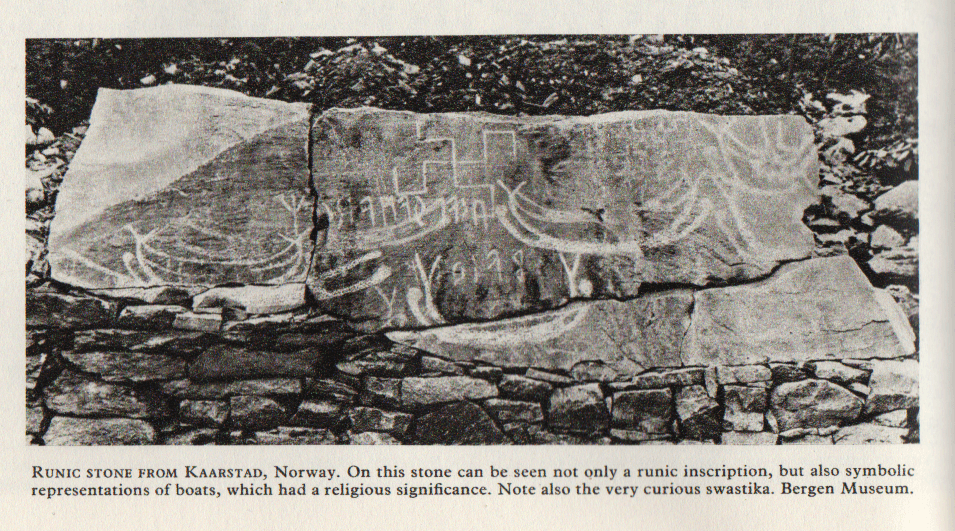
Meanwhile Frey, the dazzling Van, and Surt, chief of the fire giants, found themselves face to face. Frey would have made short work of his adversary if he had still possessed the wondrous sword which the dwarfs had forged for him.
But he had lost it while seeking the hand of his wife Gerda. Now this weapon which none could resist was in the hands of the giant Surt – and it was the god who succumbed.
Thor saw before him the monster which once long before he had attempted to kill: the great serpent of Midgard. Since that day when the god had almost torn him from the water the serpent had kept itself hidden in the bottom of the sea.
Today it had emerged for the first time and it crawled towards the thunder-god, spitting out so much venom that sea and air alike were poisoned. With his terrible hammer Thor crushed the monster’s skull and it fell back, dying. But Thor himself had breathed in so much poison that his strength failed. He tried to stagger away; but at the ninth step he fell to the ground, dead.
Loki in the old days had already found in Heimdall an adversary to be feared; Heimdall had o(*ce forced him to restore the necklace he had maliciously stolen from Freyja. Hatred had filled Loki’s heart ever since. He now sought out Heimdall, found him and killed him; but lost his own life in doing so.
Only one of the great Aesir was still alive: Tyr. With vast strides Tyr ranged the battlefield, hoping to find and slay the wolf Fenrir who had once bitten off his right hand. He was too late, for Vidar had already killed Fenrir. Suddenly, however, Tyr heard a fearful howling; it was Garm, the dog of the infernal regions. Tyr flung himself on the creature and with his left hand sank his sword deep into its heart. But he himself was so badly mauled that in his turn he, too, died.
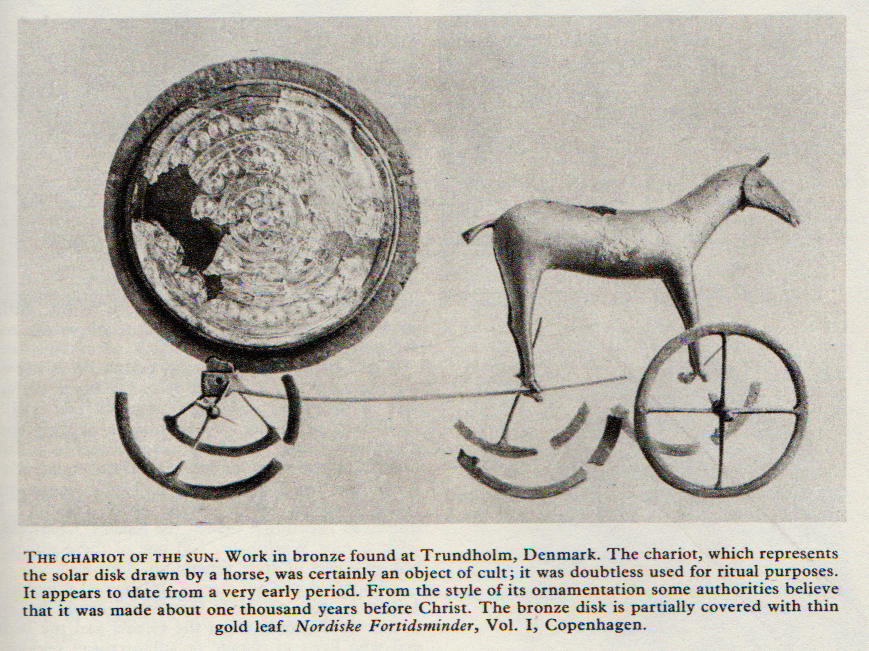
All the great gods were dead. And now that Thor, protector of mankind, had disappeared, men were abandoned. They were driven from their hearths and the human race was swept from the surface of the earth. The earth itself was beginning to lose its shape. Already the stars were coming adrift from the sky and falling into the gaping void. They were like swallows, weary from too long a voyage, who drop and sink into the waves. The giant Surt set the entire earth on fire; the universe was no longer more than an immense furnace. Flames spurted from fissures in the rocks; everywhere there was the hissing of steam. All living things, all plant life, were blotted out. Only the naked soil remained, but like the sky itself the earth was no more than cracks and crevasses.
And now all the rivers, all the seas rose and overflowed. From every side waves lashed against waves. They swelled and boiled and slowly covered all things. The earth sank beneath the sea, and the vast field of battle where the lords of the universe had faced each other was no longer visible.
All was finished.
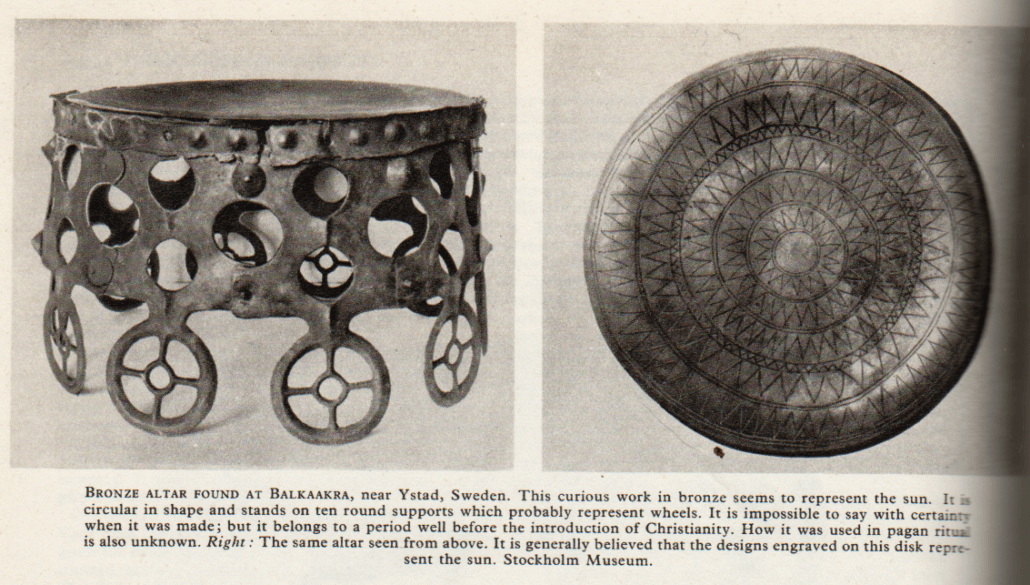
And now all was about to begin again. From the wreckage of the ancient world a new world was born. Slowly the earth emerged from the waves. Mountains rose anew and from them sprang cataracts of singing waters. Above the torrent the eagle again began to hover, ready to swoop suddenly down on the fish which played in the waters. As of old the fields became covered with verdure. Ears of corn grew where no human hand had scattered seed. A new sun – the son of that which a wolf had once devoured – shone serenely in the sky.
And a new generation of gods appeared. On the field of peace where formerly the Aesir had assembled the new gods gathered in their turn. Who were these new gods? Had they no connection with the gods of olden days? None at all.
They had already been in existence, but having never shared the passions, or quarrels, of the former gods, having committed neither perjury nor crime, they had not perished. To them it was reserved to renew the world.
There was even one resurrection: Balder, the fairest and most beloved of the gods of former days, was reborn; and, accompanied by his brother, Hod, he occupied the great festival hall where Odin had once sat. Odin himself would never return, but two of his sons, Vidar and Vali, and two of his brothers’ sons, Vili and Ve, now lived in the sky. Hoenir, who was Odin’s faithful companion, survived. Hoenir now studied the runes engraved on magic wands and, thus penetrating the secrets of the future, was able to tell the new race what happiness awaited them. Two sons of Thor, Magni and Modi, completed the new Teutonic pantheon.
Men also reappeared. For all of them had not perished in the great catastrophe. Enclosed in the wood itself of the ash tree Yggdrasil – which the devouring flames of the universal conflagration had been unable to consume – the ancestors of a future race of men had escaped death. In the asylum they had found, their only nourishment had been the morning dew.
